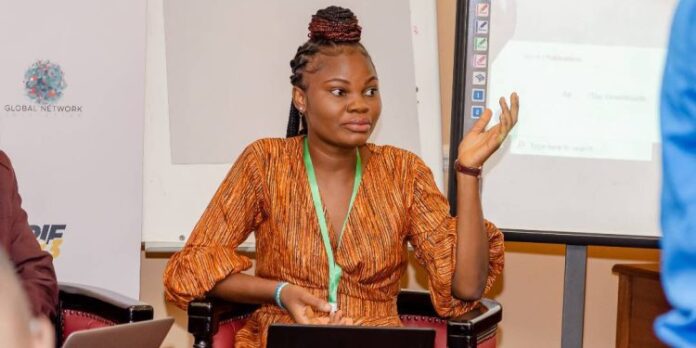“Thank you for applying for Code for Africa’s Climate Change Fact Checker Fellowship. We reviewed your application and are delighted to let you know that you have been selected to participate in the fellowship. Congratulations!”
Receiving this congratulatory email three days before my 30th birthday was so amazing, and I couldn’t keep my excitement to myself. I began to reflect on the application process, and how competitive it was. I recalled that the spot was for eight fact-checkers from Kenya, Nigeria, Senegal, and South Africa. My selection meant that I was one of the eight, and my excitement grew again.
The fellowship is my first, in many regards. It was the longest fellowship I ever won, it was the most financially rewarding fellowship in my over 8 years of journalism career, and it was the first fact-checking fellowship I ever had.
The fellowship started with a series of training and engagement, and I felt I won’t be able to meet up with all the deliverables, not because I am lazy, but because I felt getting claims on ‘climate disinformation’ would be a major challenge. Little did I know that climate denials were flooding social media platforms with misinformation and disinformation.
Surprisingly, 90% of my claims were from Twitter, one would have imagined that Twitter is not prominent for fake news, but climate denials were promoting their content on Twitter. 5% on WhatsApp and 5% on Facebook.
I commenced my fellowship and I never defaulted to deliver 36 fact-checks throughout the 9-month fellowship. The fact checks differ from time to time, for instance during the rainy season in late 2022, there were claims about excess flood and number of victims; ahead of the general elections in 2023, there were claims about how one of the Presidential candidates was supposedly tackling climate impacts.
There was also repeated disinformation such as ‘climate change is a scam’, ‘climate change is not real’, ‘there is no climate emergency’, ‘CO2 is a nutrient and not a pollutant’, ‘Net zero is a scam’, and so much more. Another claim I found fascinating was that the ice age will return in 30 years and people were advised to continue to warm the climate so the ice age doesn’t return. There were a whole lot of claims that were so ridiculous and unbelievable.
This fellowship made me understand the perception of people about climate change issues, as the fact checks I produced have helped so many people to learn and unlearn some realities about climate change. This largely increased the readership of the platform to a very large extent.
If nothing, this fellowship has thought me to be more resilient, focused, determined, and team-spirited. It wasn’t easy at inception, as I needed to go through different processes, to review my claims and then review the fact-checks before they were published. But this long process built me and also created more opportunities for me to advance my skills in fact-checking.
I fact-checked video claims, picture claims, and text. When fact-checking videos and pictures, I use open-source tools and reverse image search engines like InVid Verify, Yandex, or Tineye. After producing my fact checks, I also archive the claim, for future references. In all, I became a better fact-checker than I was, before the commencement of this fellowship.
During this fellowship, I have spoken about misinformation at local and international fora, and the need to spotlight issues around climate misinformation, as the focus is usually more on elections and politics. This exposure cannot be bought with money, thanks to Code for Africa’s PesaCheck, International Fact-Checking Network, and African Fact-Checking Alliance network.
The continuous mentorship by Bilal Tairou, Cathy Wamaitha, and supervision by Arame Thiam, Nadia Lawson, and Damilola Aderohunmu was duly appreciated. Thank you all for making this an interesting journey. I look forward to greater partnership and collaboration.








